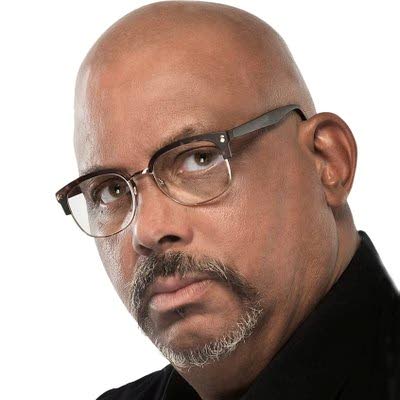Education Ministry begins digital transformation

BitDepth#1382
MARK LYNDERSAY
THERE WAS a lot of good news announced by the Ministry of Education (MoE) at the launch of its digitalisation programme on March 21.
The numbers were robust. The ministry announced that 600 schools have access to e-books in math, English and Spanish, created by its Curriculum Planning Division.
Seventy primary and secondary schools selected for a digitalisation pilot have been equipped with full e-classrooms enabling blended learning techniques.
Pending appraisal of the quality of these new teaching tools, the provision of such an expansive resource available to the student body of TT is a major advance.
E-books are expensive resources in First World environments, and at the tertiary level aren’t even sold, only rented for timed use running to semesters or a school year.
The Education Ministry did not announce strategies to accommodate the expectations of schoolbook authors who have developed textbooks currently used in the education system and who will expect licensing arrangements for their work to be included in online digital libraries.
Device distribution has placed 63,000 tablets in student hands and digital access via WiFi has been implemented at 150 secondary and 74 primary schools.
These developments, according to Minister of Digital Transformation Hassel Bacchus, act as a force multiplier for the education system.
"By bundling a diverse suite of critical technology and interventions on the one program as is done here, the MoE is now well positioned both strategically and operationally to realise the efficiencies and value that come through economies of scale and the alignment of technical administration,” Bacchus said.
The Digital Transformation Minister also noted that of the 68 primary schools in areas underserved by digital connections, 49 have been connected by the TT WiFi project, which is financed through TATT's Universal Service Fund.
Digital literacy is being addressed through a partnership between the MoDT and YTEPP that's been under way since the middle of 2022, engaging 1,200 participants from all over the country.
In that first cohort, 170 participants did not have devices or internet access and were coached at ICT centres.
Teachers will celebrate the human resource projects that have been announced by the MoE. The Government's chronically underutilised Integrated Human Resource Information System (IHRIS) has been fully integrated and activated for teacher dashboards.
Since January, more than 10,000 MoE employees have generated 1,600 leave applications online, along with 24,000 requests for job letters and 13,000 users have accessed 160,000 payslips. Downloadable TD4 slips will be added to the service soon.
Teachers previously had to call, send e-mails or visit the MoE's education towers to access these services.
Digital reporting of school infrastructure and student performance will be continuously evaluated using reports generated by the online School Infrastructure Management System (SIMS) and improvements to the Student Management System (SMS), which reports on student performance and shortfalls at both the individual and aggregate levels.
Prime Minister Rowley noted that the allocation to the Ministry of Education in the budget, 13 per cent, was the largest in the 2022-2023 budget, a sum of $7.45 billion.
Announcing these welcome upgrades to her ministry, the Education Minister took note of the three mandates driving the changes.
"One, Trinidad and Tobago will have a modern, relevant and accessible education and training system," said the Education Minister.
"Two, TT will have a seamless reformed, high-quality education and training system and three, our population will be diversely educated, innovative and entrepreneurial."
Those are bold, even hopeful, goals, and the initiatives announced by the Education Ministry are an important start.
Next steps must move beyond administrative efficiencies to addressing the imbalance in the country’s education system.
While the Education Ministry is responsible for all schools, it cannot proceed with its digitalisation strategy as if all schools are equal.
From early childhood to sixth form, there are significant differences between schools that are assisted by the State and those that are under direct state control.
Implementing systems that offer actionable data about both infrastructure and teaching practice and outcomes are a critical first step to devising strategies that make more state-run schools better at their primary mission – offering TT's children an opportunity to develop skills that will enable them to participate usefully in civil society.
Every child that experiences a successful secondary school education is a child with options.
This isn't a fight to leave no child behind, the real task is to bolster schools to the point that entry requirements are based less on reputation and more on productive, realistic education tracks with relevant career outcomes.
Mark Lyndersay is the editor of technewstt.com. An expanded version of this column can be found there


Comments
"Education Ministry begins digital transformation"